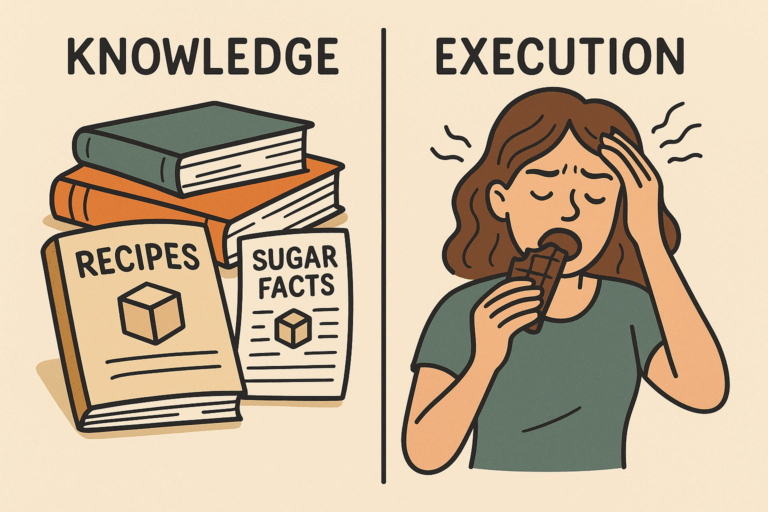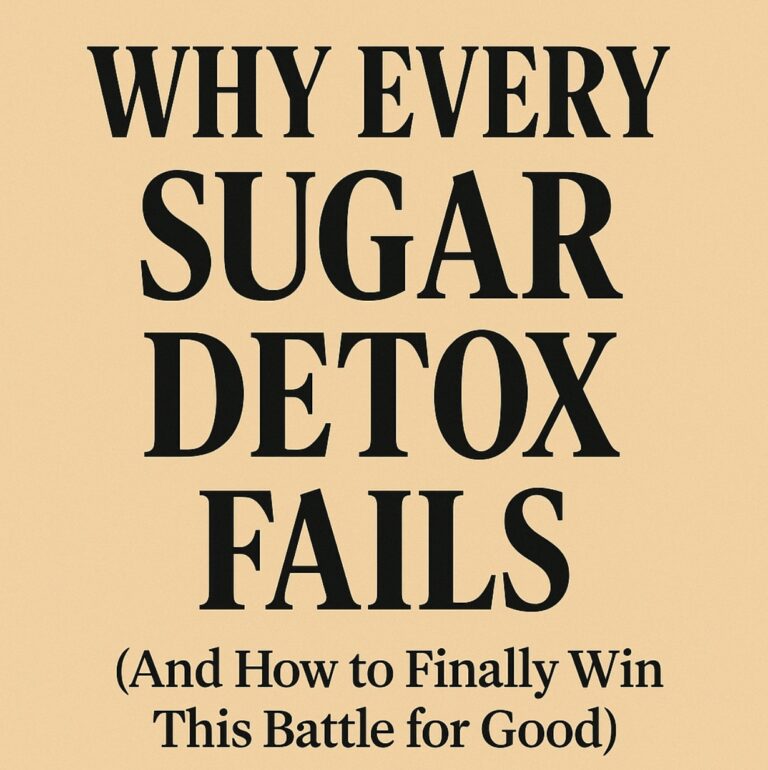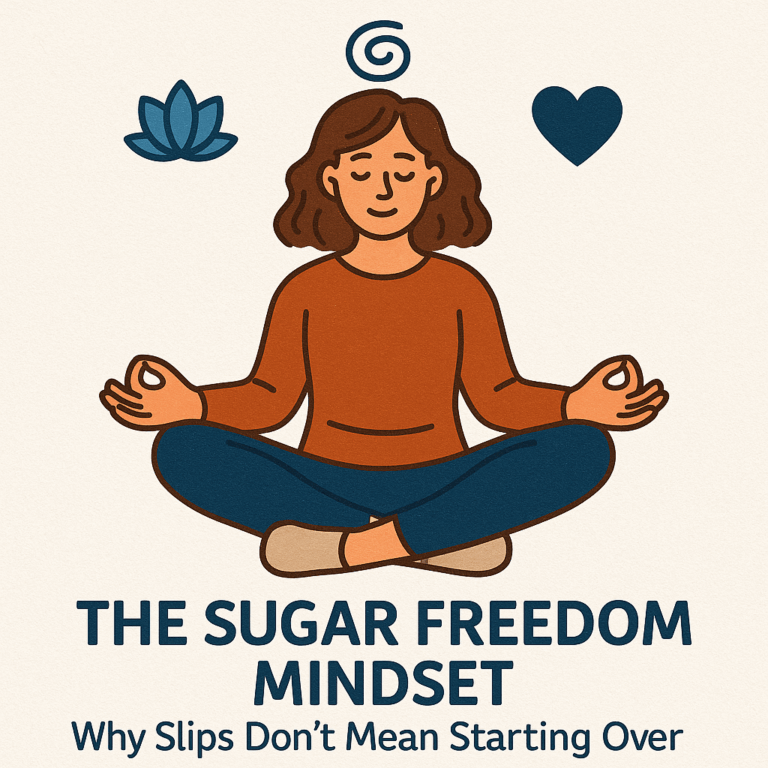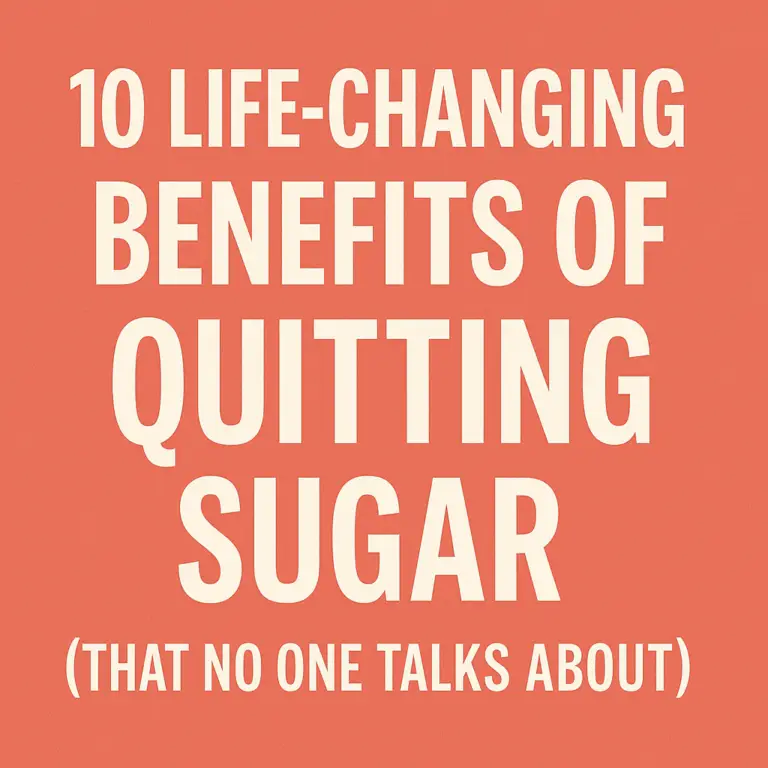By Mike, The SugarFreeMan
Founder of SugarDetox.com and the 30-Day Sugar Freedom Challenge

If you’ve ever faced your sugar cravings head-on, this question probably popped into your mind: “Do I really have to quit sugar for the rest of my life?”
It’s the most common – and the most loaded – question I hear. People almost brace themselves when they ask me, expecting me to say something harsh or absolute.
But here’s the truth:
The answer is: it depends.
I know that sounds like a cop-out, but stay with me. Everyone’s relationship with sugar is different. Your history, your body chemistry, even your emotional connection to food all play a role. Let’s break it down.
This article was review by Dr. Camela McGrath, MD, FACOG. Find more about her here
The Three Types of Sugar Relationships
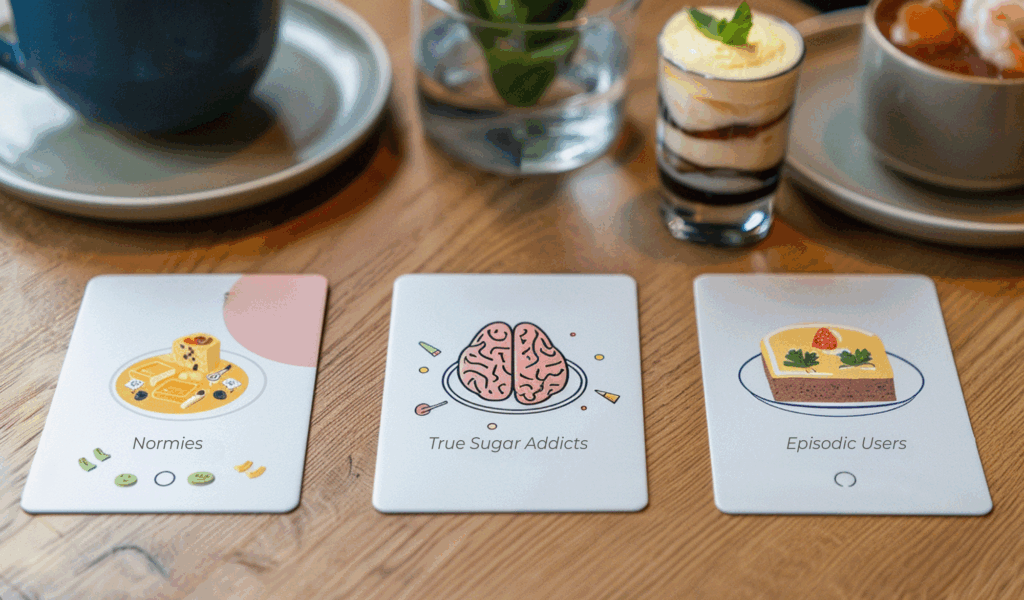
After decades of living sugar-free and watching thousands of people try to quit, I’ve noticed a pattern that matches what many sugar addiction researchers have also seen. Most people fall into one of three groups:
1. The “Normies”
About one-third of people can take sugar or leave it. They enjoy dessert now and then, but it doesn’t control them. They can have a slice of cake at a birthday and not think about it again until the next party. For them, sugar isn’t addictive.
2. The Episodic Users
The next third are the “sometimes” crowd. They’re not physically addicted, but sugar has a grip when emotions run high. Stress, loneliness, or certain life seasons (like holidays) can pull them into heavier use. With the right awareness and habits, many in this group can step back toward healthier patterns – or slide into addiction if they’re not careful.
3. The True Sugar Addicts
The last third of people have a strong biochemical reaction to sugar. For them, sugar lights up the brain’s reward system much like drugs or alcohol. One taste is rarely enough. They find themselves craving more, planning around it, and struggling to stop once they start. These folks usually need complete abstinence to heal.
How Do You Know Which Group You’re In?
You can’t always tell by guesswork. The surest way is to test it:
- Take a break from sugar. Try a structured detox for at least 30 days. This gives your body time to reset and lets you experience life without constant cravings.
- Pay attention to your cravings. If one bite sets off a chain reaction, you may fall into the addicted group.
- Use tools like our Sugar Quiz. It can give you a clearer picture of where you stand.
Time away from sugar is the most honest test you’ll ever take.
Even some educators I know have managed to return to occasional sugar use without problems. But in my experience, that’s rare. Most people who struggle deeply do best when they commit to abstinence.
Why It’s Not About Willpower
Too many people blame themselves when they can’t “just cut back.” But sugar isn’t like other foods. It hijacks the brain’s reward pathways the way addictive substances do. If you’ve tried to moderate and failed, that’s not a sign of weakness – it’s biology.
The solution isn’t to try harder. It’s to create an environment and a plan that actually works with your body, not against it.
Struggling to figure out where you fit?
If you’re serious about this, our 30-Day Sugar Detox Challenge walks you step by step through the first month. No guesswork. Just a clear path forward.
What You’ll Learn From a Sugar Detox
A short period of abstinence can teach you more about yourself than any article. Here’s what often happens:
- The fog lifts. After a week or two, people often notice clearer thinking and better mood stability.
- Cravings shift. Instead of constantly battling urges, the intensity of cravings fades.
- Energy returns. Many experience more consistent energy levels once blood sugar stops spiking and crashing.
- Perspective changes. You begin to see sugar for what it is – not food, but a refined substance with drug-like effects.
And maybe most importantly, you learn whether moderation is truly possible for you, or if abstinence is your best path.
What If You’ve Tried Before and Failed?
Most of the people I work with have tried – and failed – multiple times. That’s exactly why I built SugarDetox.com. Trying alone is tough. With guidance and community, success is much more likely.

You’re not broken. You’re not weak. You’re dealing with something powerful. But you can heal. You just need the right structure and support.
Ready to finally break free?
Join me and thousands of others inside the 30-Day Sugar Detox Challenge. You’ll get the tools, the plan, and the support to succeed this time.
Key Takeaway
So, do you have to quit sugar forever? Maybe. Maybe not. But you’ll never know until you give your body a real break and see how life feels without it. Most people who struggle with sugar don’t regret finding out – they only regret waiting so long to start.
About the Author
Mike Collins, known as “The SugarFreeMan,” has been sugar-free for over 35 years and is the founder of SugarDetox.com. He has helped tens of thousands of people break free from sugar addiction through his evidence-based approach combining nutritional science with practical behavior change strategies.
Medical Disclaimer
This article is for educational purposes only and is not intended to replace professional medical advice. Always consult with a healthcare provider before making significant dietary changes, especially if you have underlying health conditions.
FAQs
Q1: How do I know if I’m addicted to sugar?
You may be addicted if cravings feel uncontrollable, one bite triggers binges, or you constantly plan around sugar. A sugar detox is the best way to find out.
Q2: Can some people eat sugar in moderation?
Yes. About one-third of people can take sugar or leave it without problems. Others may be episodic users or true addicts who do best with abstinence.
Q3: What happens to your body when you quit sugar?
Most people notice clearer thinking, fewer cravings, better mood stability, and more consistent energy after a few weeks without sugar.
Q4: Why is sugar so addictive?
Sugar stimulates the brain’s reward pathways, releasing dopamine in a way similar to addictive substances. For some, this creates dependency.
Q5: What’s the first step to quitting sugar?
Clear your home of sugary foods, commit to a structured detox, and give your body at least 30 days without sugar to reset.
Q6: Is the 30-Day Sugar Detox Challenge right for me?
If you’ve tried to quit on your own and struggled, the challenge provides the plan, tools, and community support to succeed.

